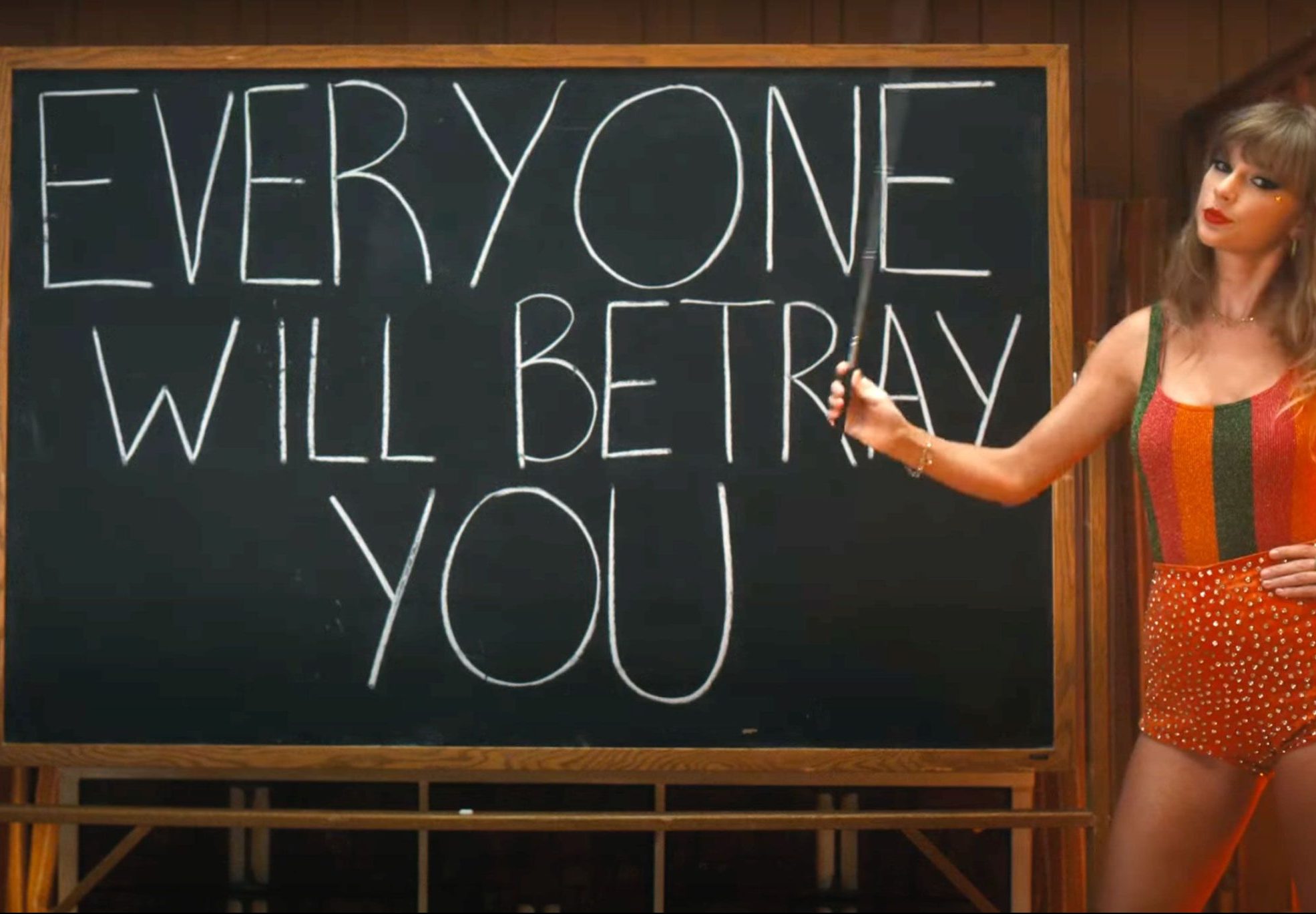A complaint was recently filed by outraged Swifties across the nation against Ticketmaster and its parent company Live Nation for mishandling the sale of Taylor Swift’s Eras Tour tickets. The complaint lists a multitude of grievances centered around accusations of “fraudulent practices and various antitrust violations.” Ticketmaster has tussled with fans and artists alike in the past for high prices and fees, manipulating the second-hand resale market, and other slimy situations. In the wake of an antitrust movement in state and federal government agencies alike, what are the implications of the lawsuit for other entertainment giants; in other words, what is the End Game?
On Nov. 15, verified presale for the Eras Tour launched at 10 am local time, and presale for Capital One cardholders occurred the following day. However, on the day of the presale launch, only a fraction of the whopping 3.5 million fans who signed up for Verified presale received a code. Furthermore, fans were outraged by the site booting them out of line and crashing with tickets in the cart. Fans who purchased tickets for Lover Fest, Swift’s attempted 2020 tour, which was canceled due to the COVID pandemic, received a ‘boost’ meant to help ensure their acquisition of tickets. However, a multitude of fans who received boosts found themselves without tickets while others without boosts received them. One analysis even produced evidence that having a boost somehow “backfired” for fans, reducing their chances of getting tickets.
Julie Barfuss, the lawsuit’s lead plaintiff, and Jennifer Kinder, a plaintiff’s lawyer, both became involved in the case after experiencing the frenzy firsthand. After trying and failing both presale days to get tickets, Kinder sent out a Google Form for jaded Swifties to “submit details about their own experiences and gauge interest in a possible class action lawsuit” when she realized just how widespread the problem was. Barfuss also had a terrible experience with presale, as the site’s crashing forced her to try — and fail — to check out so many times that “the website had identified her as a bot”; she was also charged for each unsuccessfully acquired ticket before Ticketmaster finally refunded her. The lawsuit began with 26 plaintiffs, but since the suit was filed the number of plaintiffs has nearly doubled.
The charges leveled against Ticketmaster in the lawsuit include “fraud, misrepresentation and antitrust violations over its botched Eras Tour ticket sale.” More specifically, the plaintiffs’ lawyers argued that Ticketmaster has monopolized the concert industry, forcing artists and their fans to pay inflated prices, and also effectively wiped out competition in secondary resale markets. Because Ticketmaster has made exclusive deals with the largest venues in the nation, stars like Swift who require massive stadiums for shows have no choice but to sell through Ticketmaster, resulting in “virtually all major music concert ticket sales in California and the United States go through Ticketmaster’s Primary Ticket Platform.” The plaintiffs also alleged that, for the fans who actually did receive their promised verified presale codes, “Ticketmaster intentionally provided codes when it could not satisfy ticket demand” for verified presale (with 1.6 million codes given out, allowing 6 tickets each, each stadium would have been filled up on just the first day of sales). Due to the over-saturation of verified presale fans, the Capital One presale was essentially a sham, as Ticketmaster only allotted “less than ten percent of the venues’ seating capacity.”
On Nov. 18, (when the general sale was scheduled to occur) Ticketmaster issued an apology to “Taylor and all of her fans.” However, there was a ‘but’ involved; the company also released an explanation for the fiasco. Ticketmaster claimed that based on historical concert sales, they sent out a manageable amount of presale codes. Since the interest in tickets broke several records for the company, including “the most tickets ever sold for an artist in a single day” on the 15th, Ticketmaster insinuated that they were doomed from the start. The company also blamed an unprecedented amount of bots, as well as traffic from non-verified fans for the site’s crashes; because they chose to slow down the rate of sales to stabilize the site, “the tradeoff was longer wait times in queue for some fans.”
Then, Miss Swift herself responded. In a lengthy Instagram post, she called the experience of watching the debacle play out “excruciating” as she also described herself as being “extremely protective” of her fans. She did not shy away from calling out Ticketmaster (which she did not mention by name), explaining that the company assured her over and over again that they could handle the gravity of the task. While she expressed gratitude for the over 2 million tickets that were successfully sold, she also fumed that “a lot of [fans] feel like they went through several bear attacks to get them.” Swift closed by apologizing to her loyal fans who couldn’t get their hands on tickets and promised to work on ways “to provide more opportunities for us to all get together and sing these songs.” On Monday the 12th, she appeared to follow through on her promise as many fans who received a ‘boost’ but did not get tickets received an email stating: “Congratulations, you have been selected to participate in a limited-time opportunity to request to purchase 2 tickets to Taylor Swift.” According to Ticketmaster, these tickets will not be a free-for-all like the presale, but a “purchase request” system.
The Eras Tour massacre is not Ticketmaster’s first rodeo in regards to outrage from artists and fans alike. In the early 1990s, the popular rock band Pearl Jam attempted to arrange a free Labor Day concert, so when Ticketmaster claimed it would require a $1 service fee for each ticket, the band handed out tickets themselves. The event marked a lengthy feud between the band and the company culminating in Ticketmaster virtually organizing a boycott of the band’s tour via “veiled legal threats to promoters.” The issue reached Capitol Hill, spurring a Justice Department probe. After Pearl Jam itself testified in the House of Representatives, the House proposed the ‘Pearl Jam Bill’ which aimed to ensure ticket brokers “print service charges clearly on the ticket or receipt.” Unfortunately, the bill never materialized, and Ticketmaster continued to spar with stars (including Bruce Springsteen) over exorbitant fees and resale prices.
Capitol Hill has come out strong again in the Eras Tour case, with various states’ attorneys general launching investigations into the accusations leveled against Ticketmaster. In addition, a wide array of Democrats in Congress, like the famous Alexandria Ocasio-Ortez or AOC, called for the dissolution of the Ticketmaster monopoly. Amy Klobuchar, a Democratic senator who ran for president in 2020, claimed that the Eras Tour fiasco brought light to the “vertically-integrated giant” of Ticketmaster that existed long before outraged Swifties became involved. The scandal comes at a time of growing antitrust sentiment and legislation; President Biden chose antitrust advocate and expert Lisa Khan to serve as the nation’s “top competition regulator,” and lawmakers across the aisle came together in recent efforts to break up massive social media monopolies like Facebook and Google.
Along with showing just how powerful millions of angry Swifties are, the Eras Tour debacle highlights the tension between massive entertainment companies and an increasingly antitrust federal government. However, it’s important to note that at the end of the day, the plaintiffs of the case only want to ensure fairness in future concert sales by creating an equal playing field. In the words of Jennifer Kinder, “Until transparency and fairness is won in live entertainment ticket purchases, the Great War continues.”

















